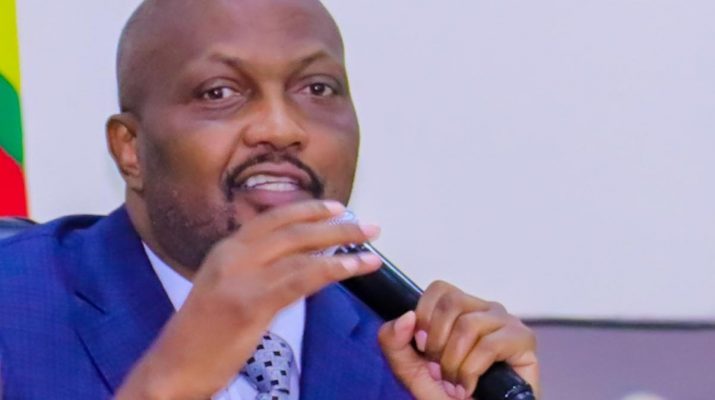By Lauryne Akoth
Public Service, Performance and Delivery Management Cabinet Secretary Moses Kuria’s announcement on royalties and music copyrights to be paid via citizen elicits mixed reactions among Kenyans. Taking to his X account, the Cs announced that the government is spearheading amendments to the copyright act to create a government-run collective management organization. “All music, copyrights and royalties will be paid through E-Citizen. Our artists will be individually registered.
They can view online how much money is collected. Siku 40 za wezi wa jasho ya artists zimeisha” he added. This announcement comes in a week after the government announced national schools to pay school fees via e-citizen.
Hours after the announcement made on X by Moses Kuria, Aisha Jumwa, Cabinet secretary in charge of the Ministry of Culture, Gender, the Arts and Heritage commented that her ministry was in charge of that mandate and they are actively engaged in efforts to enhance the efficiency of the industry.
“I like the zeal of my colleague in the spirit of one government approach this opinion is valid. However, my ministry through the state Department of Culture, Arts & Heritage is in charge and is working on streamlining the industry.”
She further added that there are ongoing discussions with stakeholders aiming to streamline the sector and once the discussions are completed the ministry will announce its subsequent steps. Jumwa’s statement hinted at a potential confusion of roles between the two ministries further sparking a spectrum of sentiments among Kenyans.
“This is in order. Moses’ suggestions are good but outside his ministry. Should not interfere with ministry ya Jumwa. My recommendation as Music Alliance of Kenya chairman.” An X user commented.
While some Kenyans are on board with the government’s directive for all government services to be on board on the citizen platform to curb corruption, others are of a different opinion; concerns about accessibility challenges. This underscores the need for a balanced exploration of public sentiments on this technological transition.

